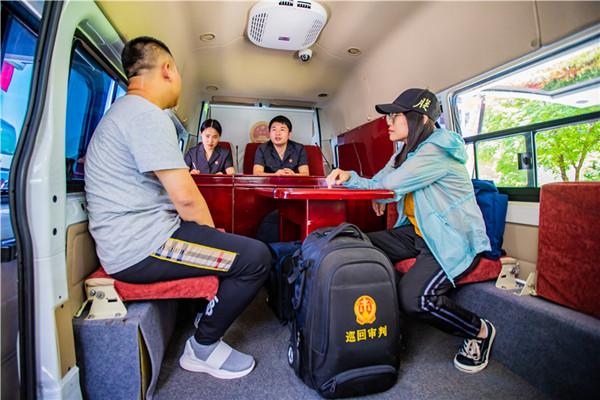Tourism courts provide one-stop solutions for conflict
 |
|
Legal assistants in the mobile courtroom show journalists how they mediate during disputes. [ZHENG LIANG/FOR CHINA DAILY] |
Quick channel
"Our aim is to help tourists solve their problems before they leave Jinggangshan, because most are outsiders and they won't want to spend money traveling back to the city to attend court hearings," Liang said.
"To achieve that, we offer a 'quick channel' so tourists don't need to attend the court to resolve their disputes. Instead, their conflict can be resolved in the minibus."
In 2017, a tourist surnamed Wang was a beneficiary of the quick channel when his child broke a carving in a handicraft store during a family visit to Jinggangshan. Wang and the store owner were unable to agree on compensation, so Liang and his colleagues were contacted.
"The officials informed us of the regulations covering compensation and the responsibilities we both bore," Wang recalled. "They also outlined the disadvantages if I filed a lawsuit, such as the time and cost involved."
In the minibus, Wang accepted Liang's suggestion, and after mediation he paid the storeowner several thousand yuan.
"After all, we came to Jinggangshan for fun, not litigation," Wang said. "Thanks to the mediation service, we didn't miss any of our scheduled activities."
Deng, the judge from Ruijin, said: "The quick channel is not a green light for troublemakers, but if the two parties cannot agree, litigation is allowed. We want to end disputes before they start to stop them becoming aggravated. Also, as the mediation work is undertaken by court clerks and legal assistants, it leaves the judges with more time and energy to focus on complicated cases."







